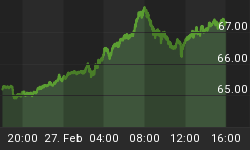As we've alluded to over the past several weeks, the United States economy has been picking up, despite continued worries over Europe and the occasional negative piece of economic data. However, while the economy has begun staging a recovery, it's hardly going strong. This lackluster improvement has been reflected in the markets, which have slowed over the past couple weeks. Not only have gains slowed, but trading volume has dried up considerably.
No matter what news comes out on any given day, stocks don't seem inclined to make any substantial improvement. Even when investors see exaggerated intraday swings on some news on Europe or Greece, or new economic data, markets have been closing mostly unchanged.
While trading activity has certainly slowed, our overall outlook has remained unchanged; we still expect that the economy - and the markets - will continue to improve. However, this improvement will happen slowly - it will be a process, not an event.
Without question, there are a number of things that the US government could do to hurry along this process. One example we've written about repeatedly is that raising interest rates would almost surely help.
The Fed's last round of rate cuts began almost five years ago in response to a stagnating economy, and as a result the Fed Funds Rate (the interest rate paid by banks who borrow from the Federal Reserve) has hovered just over zero for two years or more. Even today, all the guidance the market has received from Fed Chairman Bernanke and Treasury Secretary Geithner has indicated they expect rates to remain low "for an extended period of time."
As a result, a lot of potential borrowers have absolutely no reason to borrow TODAY rather than waiting. After all, they know that money will be cheap for quite a long time, so they can afford to wait. However, if rates were to begin rising, many borrowers would suddenly have a reason NOT to wait, but borrow more immediately, knowing that the cost of borrowing could be higher tomorrow.
Another prime example of actions the government could take to encourage economic recovery would be by cutting the duration of unemployment benefits. Since Congress caved under the pressure of so-called "99ers" in 2010, unemployment benefits for Americans have been extended to 99 weeks.
Admittedly, this extension made rational sense at that point in time, when unemployment was on the rise and the economy was still slowing. Now that the economy has stabilized, maintaining the extension just seems silly. In reality, taxpayers are paying Americans NOT to be productive. This same idea has been applied to farm subsidies (paying farmers not to grow crops) and uproar has resulted.
In fact, statistics have shown that the majority of unemployed Americans are generally able to find work within a month of their unemployment benefits ending. This clearly shows that many Americans on jobless rolls aren't trying to find work, but are content collecting their unemployment check. Repealing the extension of unemployment benefits would force many Americans to rejoin the labor force and actually be productive.
Perhaps the single most important way for the government to quicken the US recovery is through change in energy policy. This is something we first wrote about in October in 2009, in a tongue-in-cheek satire piece entitled How Obama Saved the Economy.
Unfortunately, most politicians make a terrible habit of denying facts and remembering history according to their preference. As a result, many continue to pursue policies that history has shown not to work. When we originally penned How Obama Saved the Economy we did so with the hope that the US might have a president who learned from previous presidencies - even those of just the last half-century - and acted on those lessons.
Unfortunately, we haven't been so lucky. That's not to say that we were wrong - needless to say gasoline prices are more than a little higher when we laid out a plan in October of 2009. And for all of President Obama's talk about cutting taxes on the working class, the price increases we've seen at the pump certainly don't put any more money in the pockets of Americans, regardless of class.
Nevertheless, this country has been helped tremendously by numerous new discoveries of oil and natural gas in the past several years. Some estimate that in just the past decade there has been enough natural gas discovered in the US to last this country for the next century at current consumption rates.
No matter the estimates, there's no denying that the energy sector is still a sector with incredible growth potential. In fact, the energy sector is one of very view that do not need to create demand in order to expand - the demand is persistent. Instead, all that's needed is a geographic shift in how that demand is being met. Right now it's be filled by oil from the Middle East and south America - the argument is to start filling demand with oil from west Texas or Alaska's ANWR.
Given the right policies, the energy sector could see significant gains not just in production, but in job creation as well. The key is changing policy to ALLOW for growth. That means getting the EPA out of the way - among other things.
This kind of action requires a complete change in mindset among those elected officials in positions to affect real change. Job number one for every elected official in Washington needs to be energy independence BY ANY MEANS NECESSARY. That means oil, natural gas, coal, solar, wind, nuclear, or hydro-power - you name it. The bottom line is that if it produces energy, we need to be changing policy to encourage it. With enough encouragement, the energy sector could bring the engine of the US economy roaring back to life.















